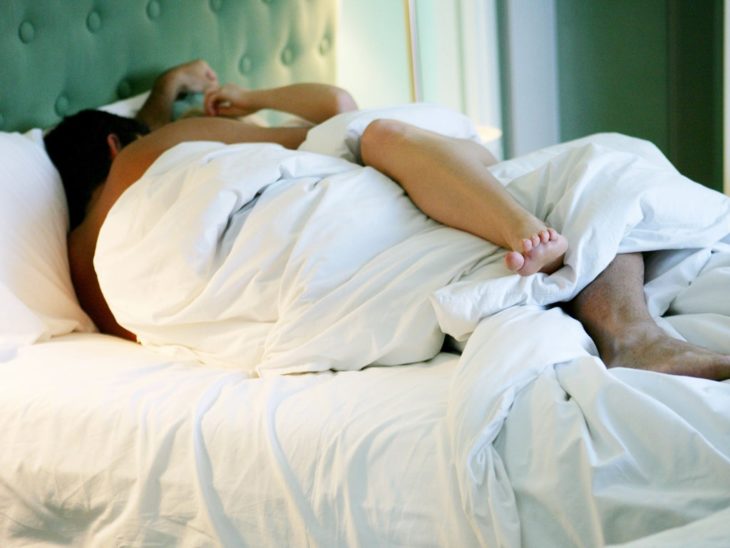Conventional wisdom tells you that, in a relationship, the more sex you’re having, the happier you are. But, as reported by The Science Of Us, that’s not necessarily the case. Researchers at Carnegie Mellon took a group of heterosexual couples and asked some of them to simply have more sex, while the others received no instruction at all. Each member of all the couples filled out surveys about mood, frequency of boneage, and relationship satisfaction over the three months that the study took place. The couples who were asked to have more sex were told to double their sexual activity. The results of the study were revealing:
“The self-reported mood was lower in the increased-sex group than in the control group, and … the effect persisted over all three months of the study.” Couples in the treatment group also became less “coordinated” when it came to how much sex they wanted — basically, just less on the same page. There weren’t any notable gender-based differences — “elevating sexual frequency in our study did not have differential effects on male and female members of the couple.”

Source: The Independent
So! It would seem that having more sex is not the key to happiness, and it’s easy to see why that would be the case. When something that is generally construed as pleasurable becomes a requirement, enjoyment lessens. It’s the same reason that couples who are having sex more frequently, under more strictly regimented guidelines, in order to conceive call it “trying.” What was once a pleasurable act of spontaneity and mutual interest is now something else to be done before you can go to bed reading the New Yorker on your Kindle and falling asleep with your glasses on.
The next time you find yourself bemoaning the lack of sex you’re having and equating it to your singledom, remind yourself that those happy couples, wrapped up in their love and kisses on the subway, might not be as happy as you think.
Original by: Megan Reynolds
